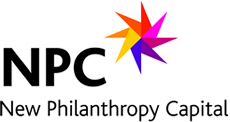News: Graduate Students from Goldsmith organise controversial Social Enterprise debate
Goldsmiths Social Entrepreneurship Society (GSES) hosted an inaugural panel debate on Wednesday 24th July at Goldsmiths, University of London. The event, entitled ‘Social Entrepreneurship: The Future,’ brought together seven prominent players from the field of social entrepreneurship and over 150 audience attendees for two hours of provocative and lively debate.
The last two decades have seen a surge in global interest, research and legitimization of Social Entrepreneurship as an increasingly popular approach to addressing the world’s diverse and pressing social issues. Yet, despite this growing interest, social entrepreneurship is still a niche industry. This debate set out to explore what it’s doing, what it could be doing better and where it is going.
Sally Reynolds, co-founder and former CEO of Social Firms UK, kicked off the debate with an impassioned vision of a future for social entrepreneurship where it would become mainstreamed. In the future she argued, the human conscience would have developed to the stage that nobody would go through life conducting business just thinking about themselves. Expressing regret for her part in historic debates about what should or shouldn’t be defined as a ‘Social Enterprise’, Sally said in the future she hopes that the phrase ‘social enterprise’ would no longer exist, as all enterprises would have positive social and environmental impact.
Sally also said that the private sector had the best skills to create big social change. “I would love to say the voluntary sector,” she said. “But the private sector has the resources and the entrepreneurial skills. It’s easier to pick up social empathy than business skills”. Sally argued that although social entrepreneurship is now talked about more than ever and the Coalition ostensibly appreciates it, the sector needs more sustainability.
Nigel Kershaw, chief executive of Big Issue Invest and chair of Big Issue, also spoke at the event. He argued that social entrepreneurship is just a tool; we need to focus on the bigger question of how to change the world and really disrupt the structure of things to make the biggest impact. When quizzed about the sincerity of the social investment community, Kershaw said that many people wanted to “give something back”, and were driven by “good hearts”. However he did warn that some, particularly those from the finance sector, were bringing “toxic thinking” into the sector. “If 22 years ago, Big Issue pitched to these people, they would not have invested in us. Impact measurement would not have been possible as we wouldn’t have had a track record yet,” he said.While he said he was not against impact measurement, there is a tendency to focus on metrics and measures and from his experience, some longer-term impacts cannot be measured.
Liam Black, the co-founder of Wavelength Companies and former CEO of Fifteen, and third speaker, praised the private sector at the event, saying that Social Enterprise UK’s fear of the private sector encroaching on the social enterprise space was misplaced. Liam highlighted that big private companies in the development sphere can make changes at far larger scale than many smaller NGOS combined and that some large corporations, including Google, were doing very exciting things in the social space. But he also conceded that if we stay idealists and refuse to work with big business, we risk nothing happening, although being a pragmatist and joining forces with big business means there is a risk of getting stitched up.
Dominic Campbell, founder and director of FutureGov, expressed unease about social investors, “when I’m applying for social investment it does not feel very different to venture capital. The only difference is a box at the end asking what is your social impact,” he said. “It is capitalism reinventing and repositioning itself to support little fleas on the back of elephants. Eventually you become subsumed by that elephant,” he warned.
Another panelist at the event, Soushiant Zanganehpour, Manager at Skoll Centre for Social Entrepreneurship, argued that it has been proven that capitalism doesn’t work and we must disrupt power relations. He suggested that private sector interest in social enterprise was about profit: “They see this as the future of competition,” he said. “They want to institutionalise issues like the environment before their competitors. It’s about margins.”
All speakers underlined that the days of discussing what a social enterprise are over – people just need to get on and do it.
The panel also included Tom Rippin, Founder and CEO of On Purpose, and Servane Mouazan, Founder and CEO of Ogunte. It was Chaired by Tim West, Editor of Pioneers Post and director of Matter & Co.
The overwhelmingly well-received debate was organised by Goldsmiths Social Entrepreneurship Society (GSES) a society set up by five postgraduate students to create a platform for provocative debate about the often complex and contentious issues affecting social entrepreneurship and social innovation today. For information on further events please see www.gsesociety.com






+44 (0) 20 3111 0735
[email protected]
Follow us on Twitter
Join us on LinkedIn
Join us on Facebook
Our photos on Flickr
Subscribe to our Feed